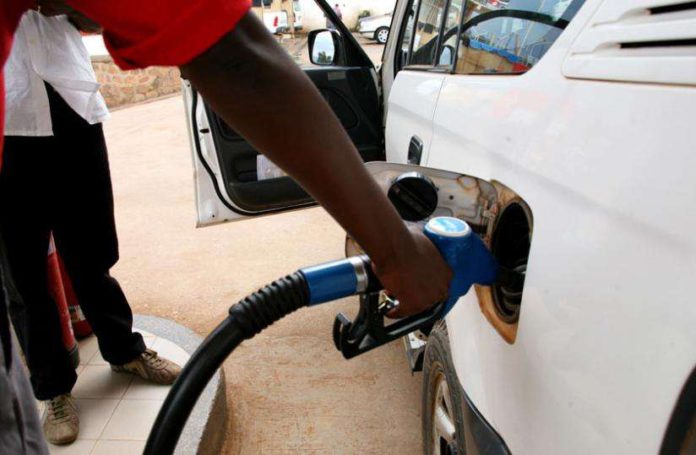The Chief Executive of the Association of Oil Marketing Companies (AOMC), Kweku Agyemang-Duah, is warning that prices of petroleum products may go up significantly by the last quarter of 2023.
According to him, the decision to implement an International Monetary Fund (IMF) conditionality of reducing dollar support to Bulk Oil Distribution Companies (BDCs) by October 2023 could force prices of petroleum products to go up.
Mr. Agyemang-Duah disclosed this on PM Express Business Edition with host, George Wiafe, on July 13, 2023.
The programme engaged, the Head of Pricing Regulation at the National Petroleum Authority (NPA) Abass Tasunti; Chief Executive of AOMC, Kweku Agyeman Duah and the Executive Secretary of the Chamber of Petroleum Consumers (COPEC) Duncan Amoah. The topic for discussion was “Pricing of Petroleum Products: Are Consumers Being Shortchanged?”
Mr. Agyemang-Duah stated that consumers should prepare to pay more for fuel as government works to implement the IMF conditionalities to enable the country access the next tranche of funds under the programme.
“It had happened in the past before, yet it could delay, but it will surely happen”, he said.
Background
The IMF has made a proposal to government to prioritise exchange rate flexibility, and rebuilding foreign exchange reserves to at least three months of imports by the end of the programme.
This is expected to lead to a review of the margins on prices of petroleum products.
The Bank of Ghana is also expected to take steps to review its dollar support for the Bulk Oil Distribution Companies.
Joy Business has learnt that the proposals have been influenced by the fact that the IMF wants the Bank of Ghana to take steps to build its reserves, rather than using its limited dollars to control the exchange rates market.
Mr. Agyemang-Duah disclosed that the implementation of the conditionalities will increase prices at the pumps.
Providing some details, Mr. Tasunti stated that the Bank of Ghana has assured that it will not rush in the implementation to disrupt the market.
“The plan is that the central bank will still continue to provide market support, as it works to finalise a favorable alternative before it reduces the support for the Bulk Oil Distribution firms”, he stressed.
On his part, the Executive Secretary of (COPEC), Duncan Amoah was worried about the impact of the conditionalities on prices of petroleum products in the coming weeks.
Mr. Amoah argued that “if there was serious stakeholder engagement on this whole forex auction support, the IMF would not have proposed the review”.
Removing some taxes
On taxes, Mr. Agyemang-Duah said government may not review levies on petroleum products.
“We don’t think that pushing for a review on some taxes on petroleum products is going to yield any results for now, looking at the fact that Ghana is under an IMF programme which is pushing government to improve revenue”, he said .
Based on the data from NPA, 75% of the cost of each litre of petroleum products, ex-refinery, taxes and levies make up 15%.
Statutory Margins account for about 9%, while distribution margin is 3.0%. There are 7.0% taxes on the price buildup of petroleum products.
Mr. Amoah argued that, government can still do more despite the current circumstance, to review some of the taxes on the price buildup of petroleum products.
On the Gold For Oil Programme , Mr. Agyemang-Duah insisted that the time has come to review the programme.
He stated that the current development on the world market makes the programme needless.
He, however, admitted that the OMCs that singed up to the Gold For Oil Programme are still participating and have not “gone out of the programme”.
ALSO READ:

